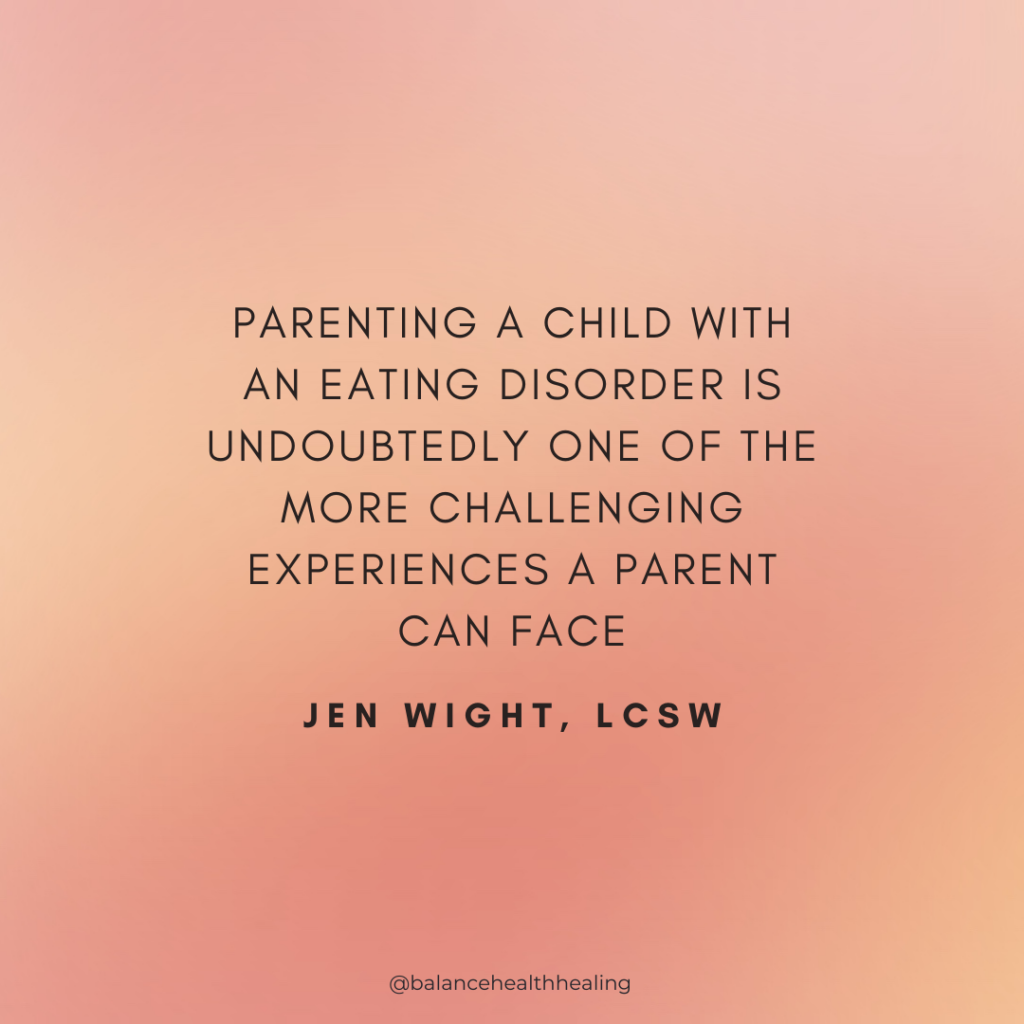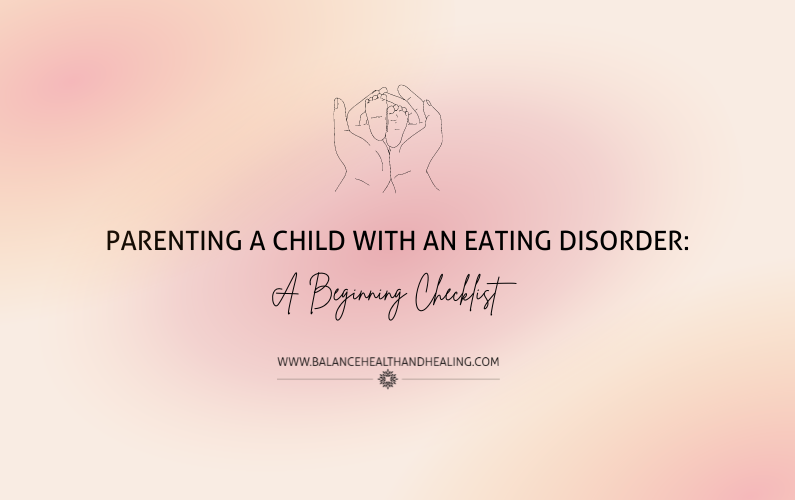If you are a parent, you already know that the role can be incredibly challenging AND rewarding. Many parents find themselves searching for a handbook or parenting manual, but as we know, newborns do not come with an instruction booklet attached! Most of the time, our intuition and some advice from well-meaning loved ones can suffice. But when you find yourself parenting a child with an eating disorder- when it feels like the parenting difficulty just ratcheted up to an overwhelmingly difficult new level- it can be hard to know where to turn for support and answers. As a parent, you know you play a crucial role in supporting your child on the path to recovery. But how do you best achieve that?
Seek Professional Help
If you are parenting a child with an eating disorder, find qualified professionals who can help. Connect with a specialized therapist, dietician, and medical doctor who is knowledgeable and skilled in the treatment of eating disorders. They will help create a tailored treatment plan for your child and can offer wrap-around support for the questions and concerns you have.
Educate Yourself
Knowledge is power. By taking the time to educate yourself about eating disorders, you will learn how to support your child as they work in recovery. The Balance Health and Healing blog is a wealth of knowledge! Here, you can learn about eating disorders and available treatment options. The more you know, the better equipped you’ll be to support your child effectively.
Foster Open Communication & Be a Role Model
Encourage open and non-judgmental communication with your child, creating a safe and comfortable space to discuss their thoughts and feelings with you. Be patient and actively listen, avoiding criticism or shaming. Be a recovery role model. Children are watching their parents… even when we think they aren’t! Exemplify a healthy relationship with food and body image within your household. Avoid diet talk or negative comments about your own body. Show your child that self-worth is not defined by appearance. Ensure your home environment is conducive to recovery by removing triggers such as diet foods, fashion magazines promoting unrealistic body ideals, and negative influences on social media. Cultivate a supportive and nurturing atmosphere for recovery.
Collaborate with the Treatment Team
Work with your child’s treatment team- attend therapy sessions, family counseling, medical and dietary appointments as recommended. Collaborative efforts between you, your child, and professionals are vital for recovery.
Monitor Progress, Not Perfection
Recovery from an eating disorder is not a linear process- there will be ups and downs along the way. Focus on your child’s progress rather than expecting perfection. Celebrate small victories and provide unwavering love and support during setbacks.
Self-Care for Parents
Remember that parenting a child with an eating disorder is a new and challenging task. Don’t neglect your own well-being. Seek support from friends, family, or a therapist to help you cope with the stress and emotions that arise. As you model healthy behaviors, your child will continue to be strengthened by your example.
Parenting a child with an eating disorder is undoubtedly one of the more challenging experiences a parent can face. However, with the right support and professional guidance, recovery is possible for your child. Your role in that process takes patience and unwavering love. You- and your child- are not defined by the eating disorder, and with support, you can play a vital role in helping them find their way to a healthier, happier life.

